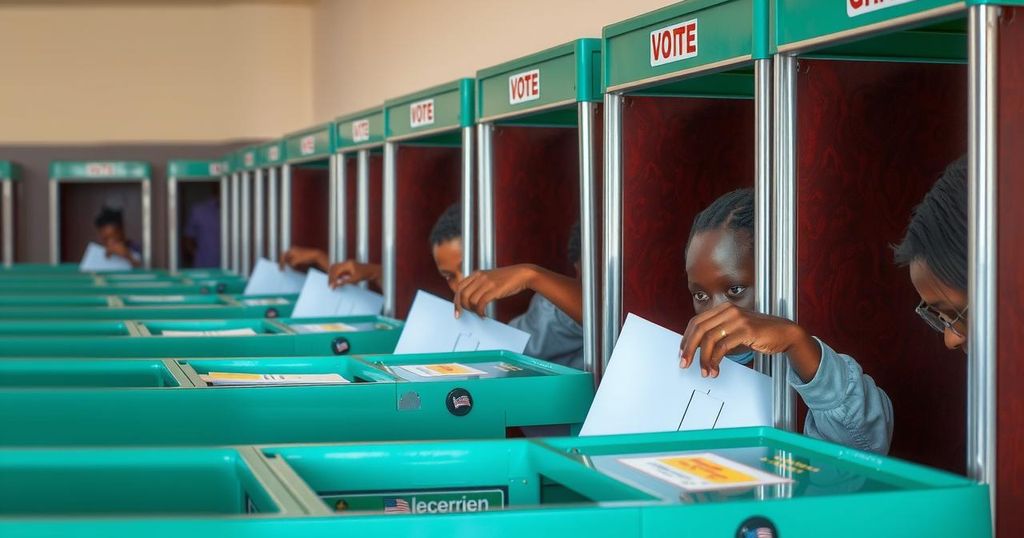Ghana’s General Election: A Pivotal Test of Democracy Amid Economic Crisis

Ghana’s polls opened for elections amid the worst economic crisis in a generation, with approximately 18.7 million registered voters. Vice President Mahamudu Bawumia faces former President John Dramani Mahama in a contest largely viewed as two-horse. Both candidates promise economic stabilization, yet voter skepticism remains high amidst rampant inflation and job scarcity. The election’s results could significantly impact democracy and economic recovery in the region.
On Saturday, polls opened in Ghana for presidential and parliamentary elections, a significant moment that tests the nation’s democratic resilience amidst a severe economic crisis. Approximately 18.7 million voters are registered in a nation that was once heralded as a stabilizing force in West Africa but now grapples with rampant inflation and high unemployment rates.
The election features twelve presidential candidates; however, the main contest appears to be between Vice President Mahamudu Bawumia of the ruling New Patriotic Party (NPP) and former President John Dramani Mahama of the National Democratic Congress (NDC). Both candidates, despite their party differences, offer similar economic strategies that leave many voters skeptical of any substantial change.
Challenges facing the nation include a significant rise in inflation, which was recorded at 54% at the end of last year, and the country’s default on much of its foreign debt due to the worsening economic conditions. Despite upbeat campaign rallies advocating solutions to these crises, the reality at the markets remains dire for many Ghanaians. Illegal mining, notably in the gold sector, continues to plague the economy while endangering environmental health.
The election outcome will significantly impact not only Ghana but the broader democratic landscape in a region witnessing increasing instability from coups and extremist violence. As citizens head to the polls, the aspirations for tangible change in recovery and governance are palpable among the populace.
The general elections in Ghana occur against the backdrop of a transformative period. Ghana, previously recognized as a paragon of democracy, is currently experiencing profound economic challenges that have eroded public confidence and prompted widespread dissatisfaction. Citizens remain deeply concerned about rampant inflation, job scarcity, and significant social issues, all of which are exacerbated by a backdrop of increasing political tension influenced by the region’s unsettling political climate. This election is particularly crucial as it will test the nation’s commitment to democratic norms in light of the economic distress.
The elections in Ghana represent a pivotal moment for the nation, reflecting both the resilience of its democracy and the urgency of addressing economic despair. With two leading candidates promoting similar agendas amidst a backdrop of public dissatisfaction, the outcomes of these elections will determine not only the future of governance in Ghana but also the stability of democratic practices in the region. Observers will closely monitor whether the electoral process can facilitate genuine change for a beleaguered nation.
Original Source: www.newsday.com






